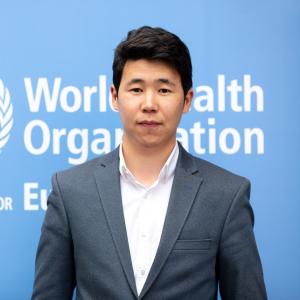Strengthening Health in the Mountains of Kyrgyzstan Through Collaboration and Dialogue
06 June 2024
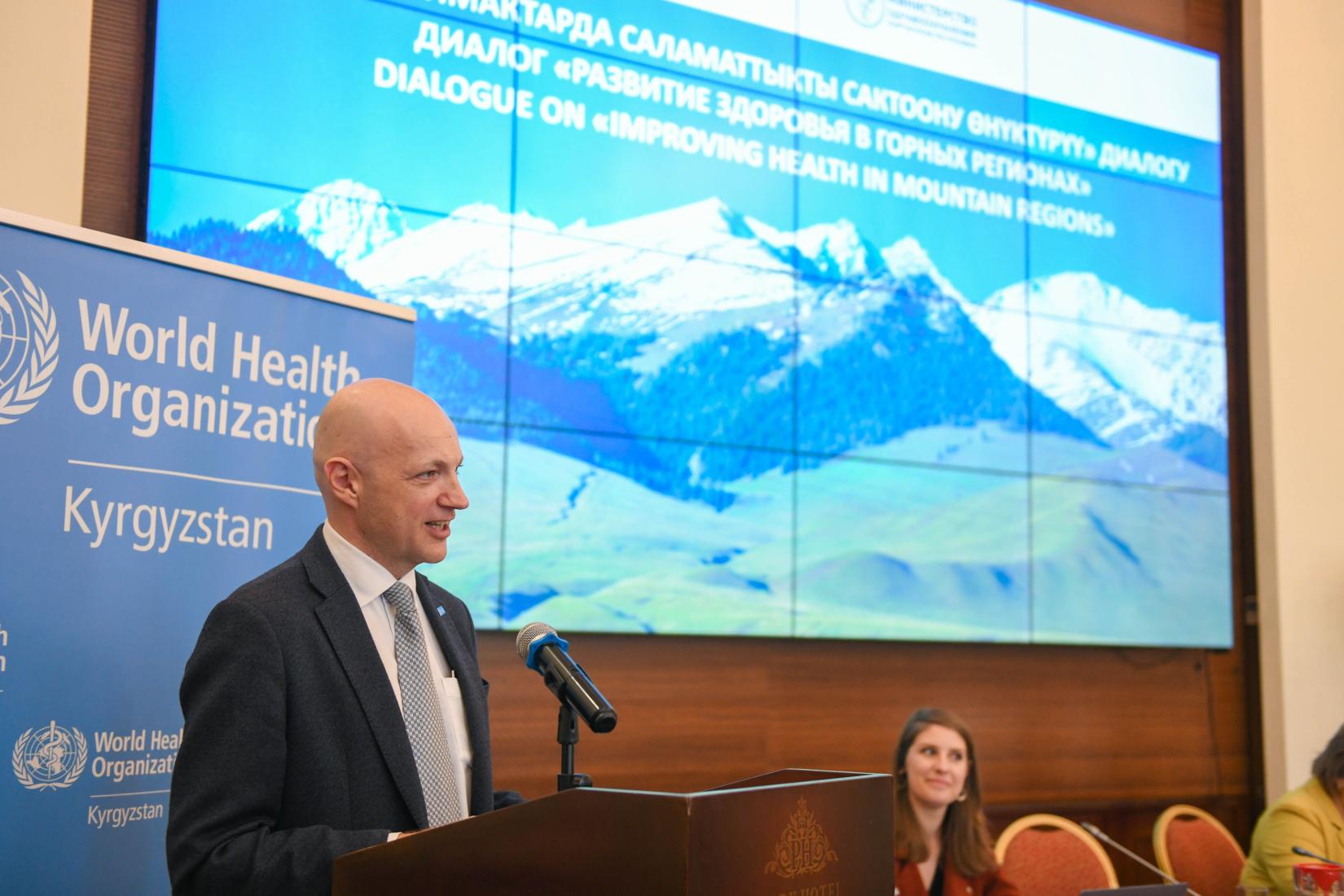
Bishkek, Kyrgyzstan - The Ministry of Health of the Kyrgyz Republic (MoH) and the World Health Organization (WHO) are pleased to announce the high-level policy dialogue on “Health in the Mountains Agenda." This event addresses the health challenges faced by mountain communities.
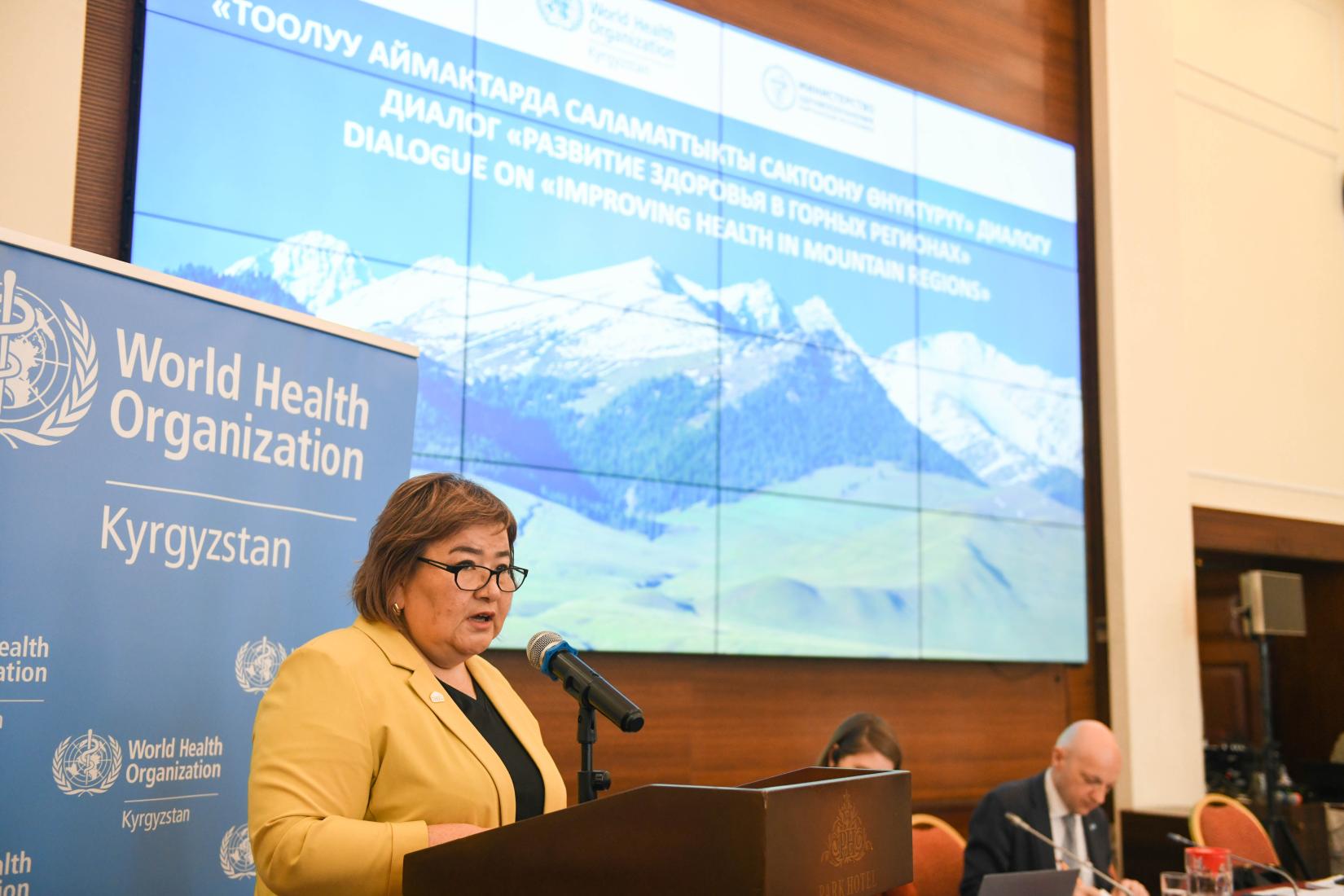
Representatives from the Special Envoy of the President of the Kyrgyz Republic on Mountain Issues, UN Resident Coordinator, Plenipotentiary Representatives of the President in oblasts, development partners, foreign embassies, various ministries and agencies attended the event.
In 2022, Kyrgyz President Sadyr Japarov initiated the adoption of the "Sustainable Mountain Development" resolution by the United Nations General Assembly. This resolution calls for "Five Years of Action for the Development of Mountain Regions" from 2023 to 2027, highlighting the issues faced by mountainous communities due to climate change, food insecurity, emergency, and poverty, as well as health and well-being.
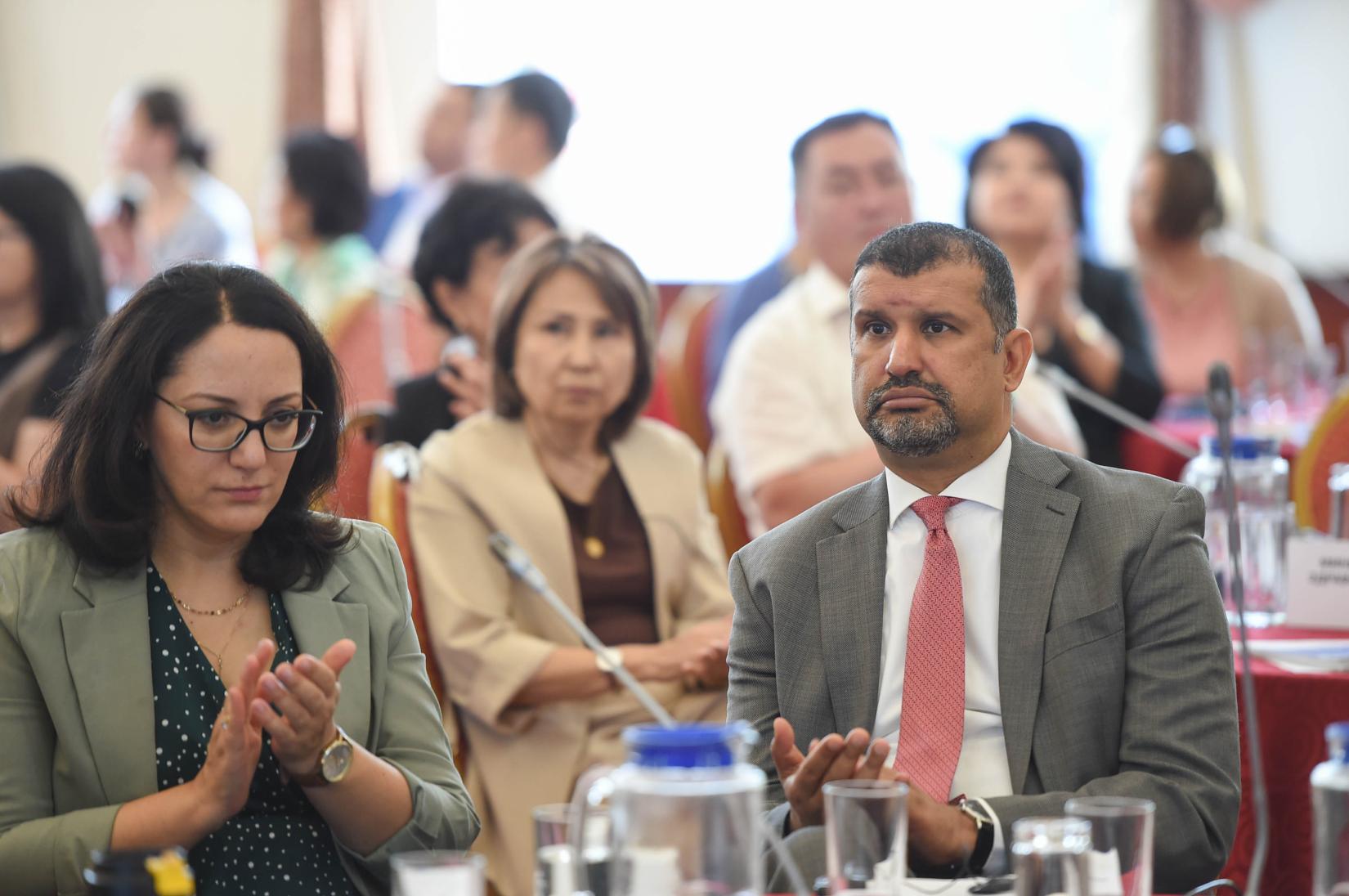
In Kyrgyzstan, where 90% of the country is above 3,000 meters, health issues such as high-altitude pulmonary hypertension and abdominal obesity are common. However, the challenges go beyond these conditions. Disparities in health system performance, access to clean water and sanitation, and other determinants of health contribute to health inequities in rural and remote mountain areas.
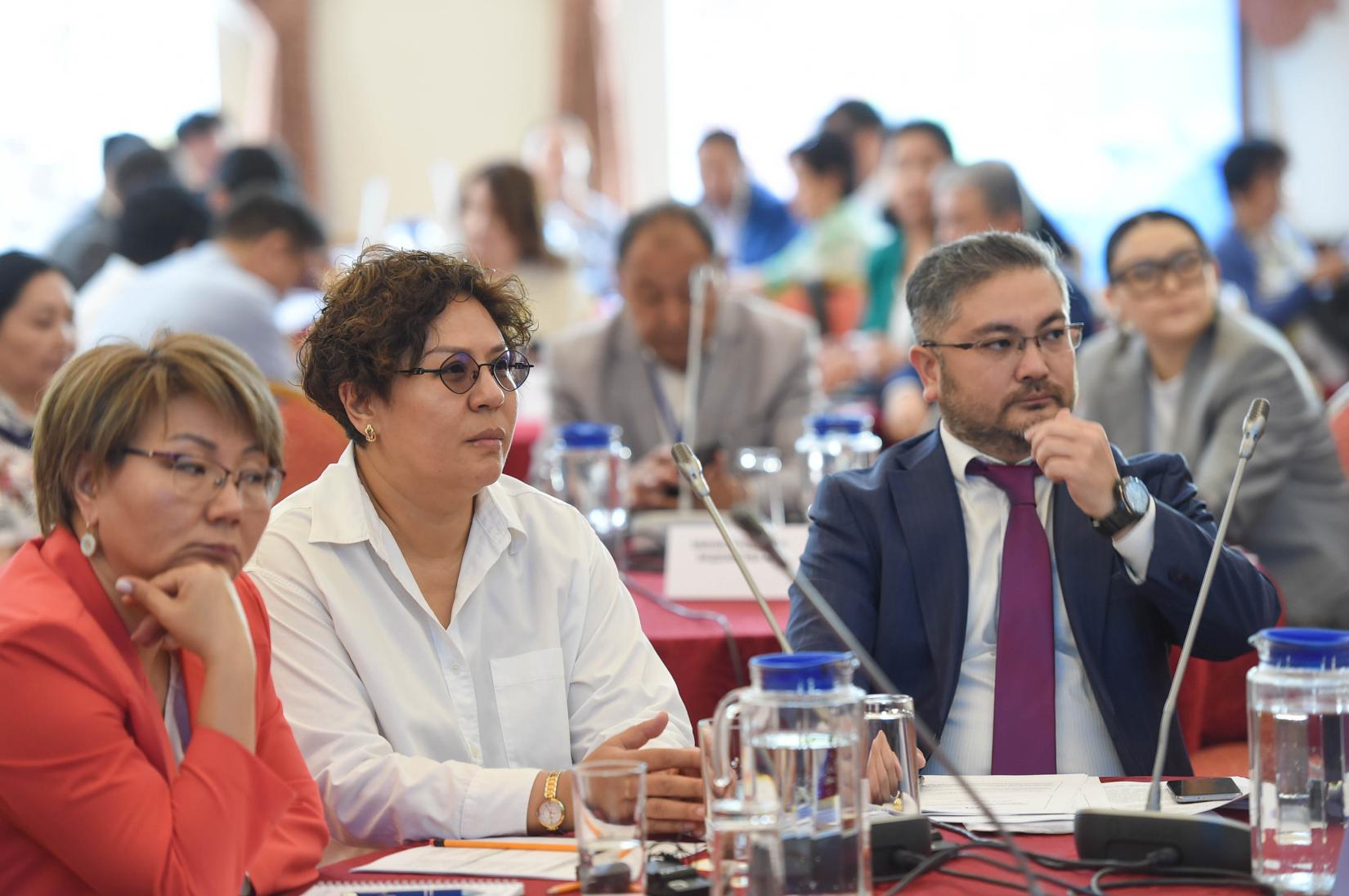
To tackle these issues, the "Health in the Mountains Agenda" has become an area of collaboration between the Kyrgyz Government, WHO, and other international organizations involved in advancing the Mountains Agenda. As a first step in this effort in the health sector, the Ministry of Health and WHO brought together key stakeholders for a two-day starting dialogue.
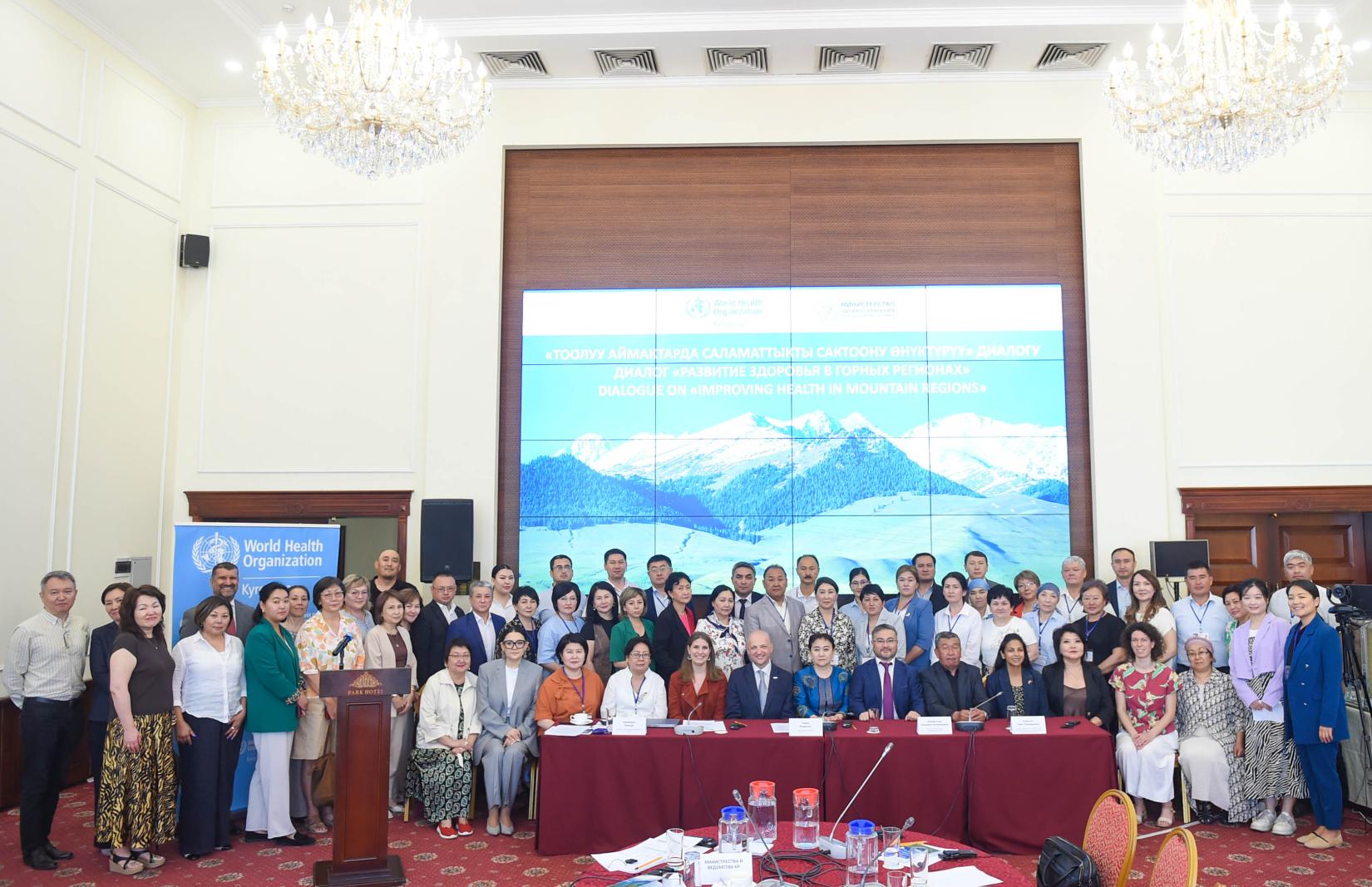
The event expanded the concept of health within the Mountains Agenda, emphasizing the importance of a people-centered, comprehensive, and intersectoral approach to improving health and well-being of those living in mountainous areas, leaving no one behind. It also highlighted the need for cross-sector collaboration to tackle inequities affecting the health of mountainous communities, with a focus on primary health care, social participation, community engagement, and the role of local government development initiatives.
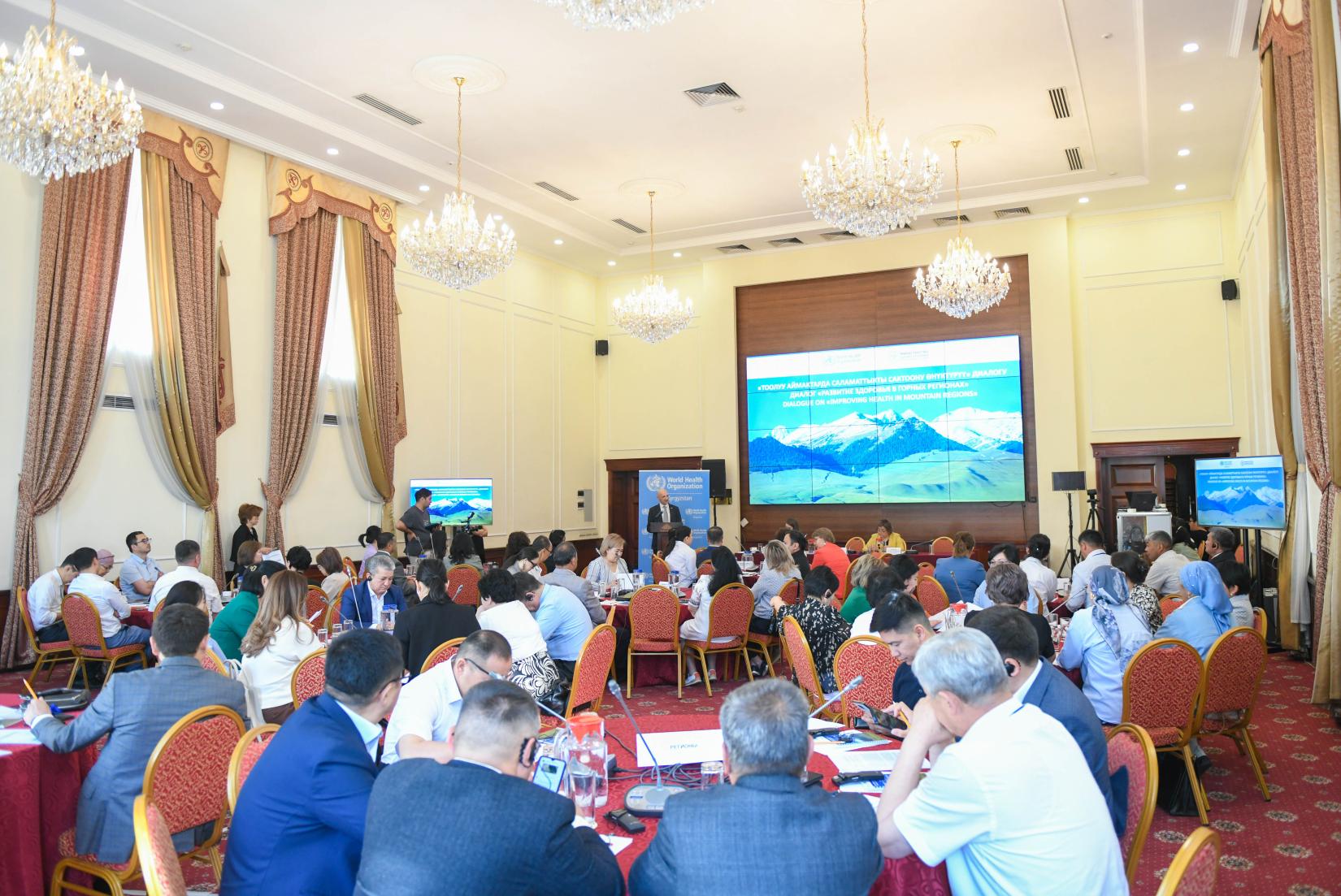
Participants shared their experiences and ideas, aiming to develop a common agenda and concrete steps for future collaboration at national, regional and local levels.
